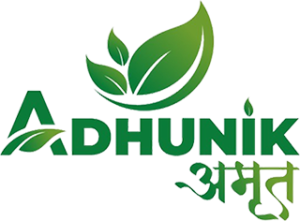While gardening can be a calming and fulfilling hobby, it takes more than just sunshine and water to keep your plants healthy and vibrant. Plants must receive the right care and nutrition for lush, healthy vegetation. We will discuss the value of liquid fertilizers, the advantages of plant growth promoters, and the reasons that organic plant fertilizer is the best option for your garden in this extensive guide.
Plants Protection: The Foundation of a Healthy Garden
A variety of techniques are used in plant protection to keep plants safe from diseases, pests, and environmental stresses. The first steps in effective plant protection are selecting the proper soil and preserving growth-promoting conditions. To tackle pests, it also entails taking preventative steps including employing barriers, organic repellents, and helpful insects.
Physical Barriers
Using physical barriers to protect plants is one of the simplest solutions available. You can stop insects, birds, and other animals from harming your plants with netting, fences, and row covers. These barriers work especially well to safeguard more delicate plants and young seedlings that are vulnerable to pest damage.
Biological Controls
Another all-natural way to preserve your plants is to introduce helpful insects like ladybugs and predatory beetles into your garden. Fewer chemical interventions are required because these insects feed on common garden pests. Furthermore, growing companion plants like marigolds can aid in naturally discouraging hazardous insects.

The Power of Liquid Fertilizers
If gardeners want to provide their plants with easily accessible nutrients, liquid fertilizers are a great option. Liquid fertilizers are especially effective for delivering nutrients quickly since they can be swiftly absorbed through the roots and leaves, unlike solid fertilizers.
Advantages of Liquid Fertilizers
Rapid Absorption: Plants can absorb nutrients more quickly while using liquid fertilizers because of their easy absorption.
Even dispersion: Liquid fertilizers, when properly administered, guarantee an even dispersion of nutrients.
Customizable: Liquid fertilizers can be blended and adapted to each plant’s unique requirements.
Incorporating liquid fertilizers into your gardening regimen might result in stronger plant growth and enhanced overall health. Frequent application, particularly during crucial periods like flowering and fruiting, can stimulate strong development and address nutrient deficits.
Plant Growth Booster: Enhancing Natural Growth
A substance called a “plant growth booster” is made to help plants grow more naturally. These boosters frequently combine important nutrients, hormones, and advantageous microorganisms to promote plant growth and increase resilience.
Types of Plant Growth Boosters
Nutrient-Based Boosters: These have elevated levels of vital nutrients such as potassium, phosphorus, and nitrogen.
Hormone-Based Boosters: These consist of naturally occurring plant hormones that control growth and development, such as gibberellins, auxins, and cytokinins.
Microbial boosters: They improve nutrient availability and encourage better root systems by introducing healthy bacteria and fungi into the soil.
Your plants’ size, output, and general health can all be significantly enhanced by adding a plant growth booster to your gardening regimen. Plants that are struggling or recovering from stress benefit greatly from these stimulants.
Organic for Plants: A Sustainable Approach
Selecting organic plant food is good for the environment as well as your garden. Utilizing natural resources and methods is given priority in organic gardening techniques in order to preserve soil fertility and plant health.
Benefits of Organic Gardening
Soil Health: By increasing microbial activity and organic matter content, organic techniques enhance soil structure and fertility.
Environmental Impact: By lowering pollution and chemical runoff, organic farming practices safeguard nearby ecosystems.
Plant Health: Stronger, more resilient plants are encouraged by organic fertilizers and treatments.
Organic Plant Fertilizer: Nourishing Naturally
Manure, compost, and plant extracts are examples of natural sources from which organic plant fertilizer is made. These fertilizers gradually release nutrients, giving plants a consistent supply of food over time.
Types of Organic Plant Fertilizers
Compost: Packed with nutrients and organic matter, compost enhances soil fertility and structure.
Dung: Providing vital nutrients and enhancing soil health, animal dung is a potent fertilizer.
Plant Extracts: Nutrient-rich liquid fertilizers for foliar feeding can be prepared from seaweed, fish emulsion, and other plant materials.
Using organic plant fertilizer promotes long-term soil health and is consistent with sustainable gardening techniques. Organic fertilizers don’t damage the ecosystem or deteriorate soil like synthetic fertilizers do.
Integrating Practices for Optimal Results
Use liquid fertilizers and plant growth boosters in your garden along with several plant protection techniques for optimal results. Here’s how to make a flourishing, healthy garden step-by-step:
Start with healthy, well-draining soil to prepare the ground. To improve fertility, amend it with compost or other organic debris.
Plant Selection: Select plants that are appropriate for your soil type and environment. Pests and illnesses are more likely to be resisted by healthy plants.
Frequent Feeding: To ensure a constant supply of nutrients, use organic plant fertilizers. During crucial growth phases, add liquid fertilizers as a supplement for rapid nutrient boosts.
Protection Measures: To protect your plants from pests and diseases, put in place both biological and physical barriers.
Growth Boosters: To improve growth and resilience in plants, especially during stressful or high-demand times, use growth boosters as needed.
FAQ’s (Frequently Asked Questions)
Q. Which is the best method of plant protection?
A. There are three main approaches to successful plant protection, each with varying degrees of success; pesticide based measures, biological pest control, and barrier methods.
Q. What is example of plant protection?
A. 4.1 Plant protection products, referred to here as pesticides, are chemicals used for controlling agricultural pests and diseases; these include herbicides (weed control) fungicides, and insecticides.
Q. How is a plant protected?
A. Physical defenses are the first line of protection for many plants. These defenses make it difficult for herbivores to eat plants. Examples of physical defenses are thorns on roses and spikes on trees like hawthorn. These physical defenses hurt the herbivores and stop them from eating plants’ stems or leaves.
Q. How to protect plants from pests?
A. Use Insect Spray for Plants:
Try making insect sprays for plants yourself using ingredients like vegetable oil, white vinegar, apple cider vinegar, liquid soap, neem oil, eucalyptus oil, and lemon. These used in a spray bottle in some combinations can help repel garden insects without harming the plants.
Q. What is the plant protection?
A. Plant protection is the science and practice of managing pests, diseases and weeds that damage crops and other plants, and which can have a devastating effect on farmer livelihoods. ( Source: CABI)
Q. What plants use for protection?
A. Mechanical Defenses
The first line of defense in plants is an intact and impenetrable barrier composed of bark and a waxy cuticle. Both protect plants against herbivores. Other adaptations against herbivores include hard shells, thorns (modified branches), and spines (modified leaves).
Q. How can we protect plant life?
A. Article Detail
1. Water your plants in the morning.
2. Use a light mulch.
3. Use shade covers.
4. Avoid over-watering your garden.
5. Weed your garden regularly.
6. Still waters run deep Prevent water from stagnating, whether on the soil or pots and trays.
7. Plants can be friends too.
8. Don’t re-pot during a heat wave.
Q. What is organic plant protection?
A. Direct plant protection measures in organic production can be mechanical/thermal weed control and/or natural inputs. Organic farmers chiefly use insecticides and fungicides as plant protection products.
Q. What is legal protection of plants?
A. India Code: Protection of Plant Varieties and Farmers Rights Act, 2001. Long Title: An Act to provide for the establishment of an effective system for the protection of plant varieties, the rights of farmers and plant breeders and to encourage the development of new varieties of plants.
Q. Which part of plant is protected?
A. Cell Wall protects the plant cell.
Conclusion
Science, creativity, and a little bit of intuition are all combined in the continuous learning process that is gardening. You may design a vibrant garden that is both aesthetically pleasing and environmentally friendly by emphasizing plant protection, utilizing liquid fertilizers, and adding plant growth enhancers. Using organic plant fertilizers also guarantees that your gardening methods are sustainable and promote long-term soil health. Accept these tips, and see how your garden flourishes with colorful, robust plants.





 Locate Us
Locate Us